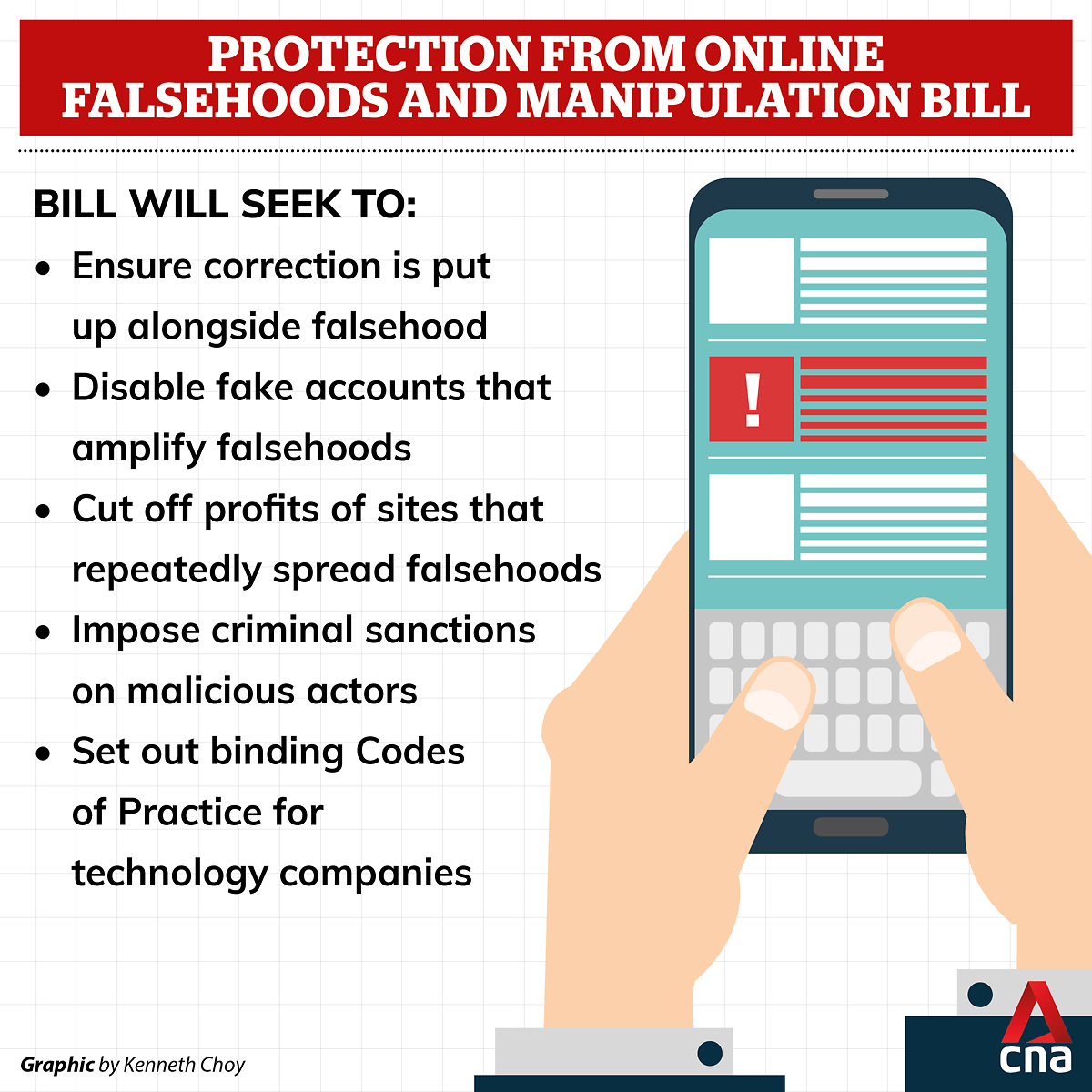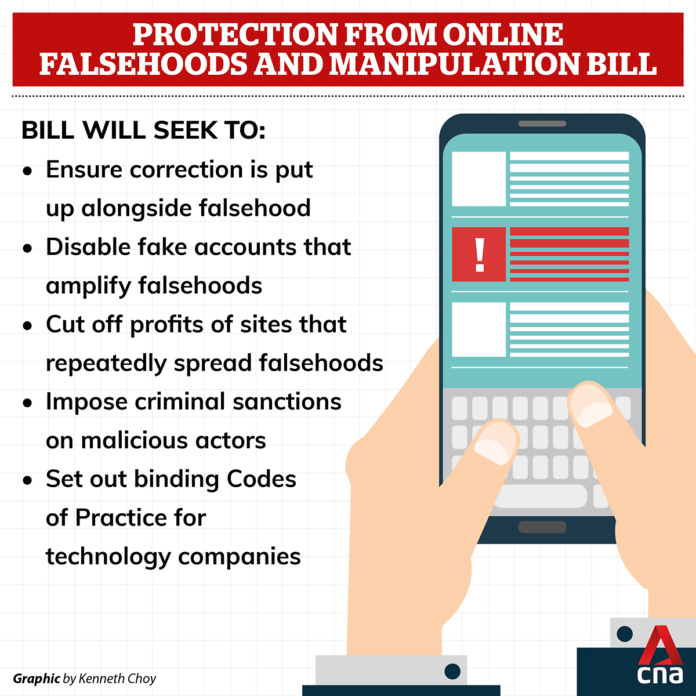SINGAPORE: Facebook as well as a regional body representing the interests of Internet and technology companies have expressed their concerns over various aspects of the Protection from Online Falsehoods and Manipulation Bill, which was tabled in Parliament on Monday (Apr 1).
Others like Twitter and Google reserved comment as they have yet to look at the Bill in detail.
The Asia Internet Coalition was strong in its comments of the proposed Bill, with managing director Jeff Paine saying it is “deeply disappointed” by the lack of meaningful opportunities for public consultation during the drafting process of the legislation.
READ: Singapore proposes multi-pronged law to combat online falsehoods
This is especially so, given the “significant implications” it could have for diverse stakeholders, including industry, media and civil society in Singapore, the region and internationally.
It was also concerned that the proposed legislation would give the Singapore Government full discretion over what is considered true or false.
“As the most far-reaching legislation of its kind to date, this level of overreach poses significant risks to freedom of expression and speech, and could have severe ramifications both in Singapore and around the world,” Mr Paine said in a statement on Monday.

FACEBOOK AND SINGAPORE GOVERNMENT CLASH AGAIN
The Asia Internet Coalition is not the only one concerned about the Bill.
Facebook’s vice president of Public Policy Simon Milner said in an email that it is “concerned” with aspects of the law that “grant broad powers to the Singapore executive branch to compel us to remove content they deem to be false and proactively push a government notification to others”.
READ: ‘We made a wrong call’: Facebook says it should have informed users earlier on Cambridge Analytica breach
Corrections will be the primary response to a harmful online falsehood that is actively spreading, the Law Ministry said on Monday. This means that for a targeted correction, an order can be issued to the person who made the online falsehood to include a correction with it, so whoever sees the falsehood can also see the facts.
“Giving people a place to express themselves freely and safely is important to us and we have a responsibility to handle any government request to remove alleged misinformation carefully and thoughtfully,” Mr Milner said.
The social media giant had previously clashed with the Government over such take-down requests.
The Ministry of Law said last November that the platform cannot be relied upon to filter falsehoods or protect Singapore from a false information campaign after the former refused to take down a post by the States Times Review linking Prime Minister Lee Hsien Loong with the 1MDB investigations.
Mr Milner did say it appreciated the Government’s close consultation on the important issue and shared the same commitment to reduce the spread of deliberate online falsehoods.
It said the draft legislation already reflects a number of investments Facebook has made to combat false news and disrupt attempts to manipulate civic discourse, including identifying and disrupting coordinated inauthentic behaviour and introducing more political ads transparency.
READ: Regulating online falsehoods is ‘new area’ for Singapore Government, says S Iswaran
TWITTER, GOOGLE STILL CONSIDERING BILL
Founder Mark Zuckerberg had over the weekend also said the company supports meaningful regulation, and is in favour of working with governments on rules in four areas: Harmful content, election integrity, privacy and data portability.
Meanwhile, a Twitter spokesperson told CNA it is the first time it is seeing the law in its entirety and its teams “are still reviewing to assess its implications”.
Google, similarly, said it will be studying the Bill to determine its next steps. “(We) urge the government to allow for a full and transparent consultation on the proposed legislation,” a company spokesperson said.
AIC, too, said it will be studying the Bill in the coming days.
“We remain committed to working closely with the Government and other stakeholders to tackle misinformation, and hope that the enforcement of this legislation will not be at the expense of the benefits that public debate and exchange of ideas can bring,” Mr Paine said.





